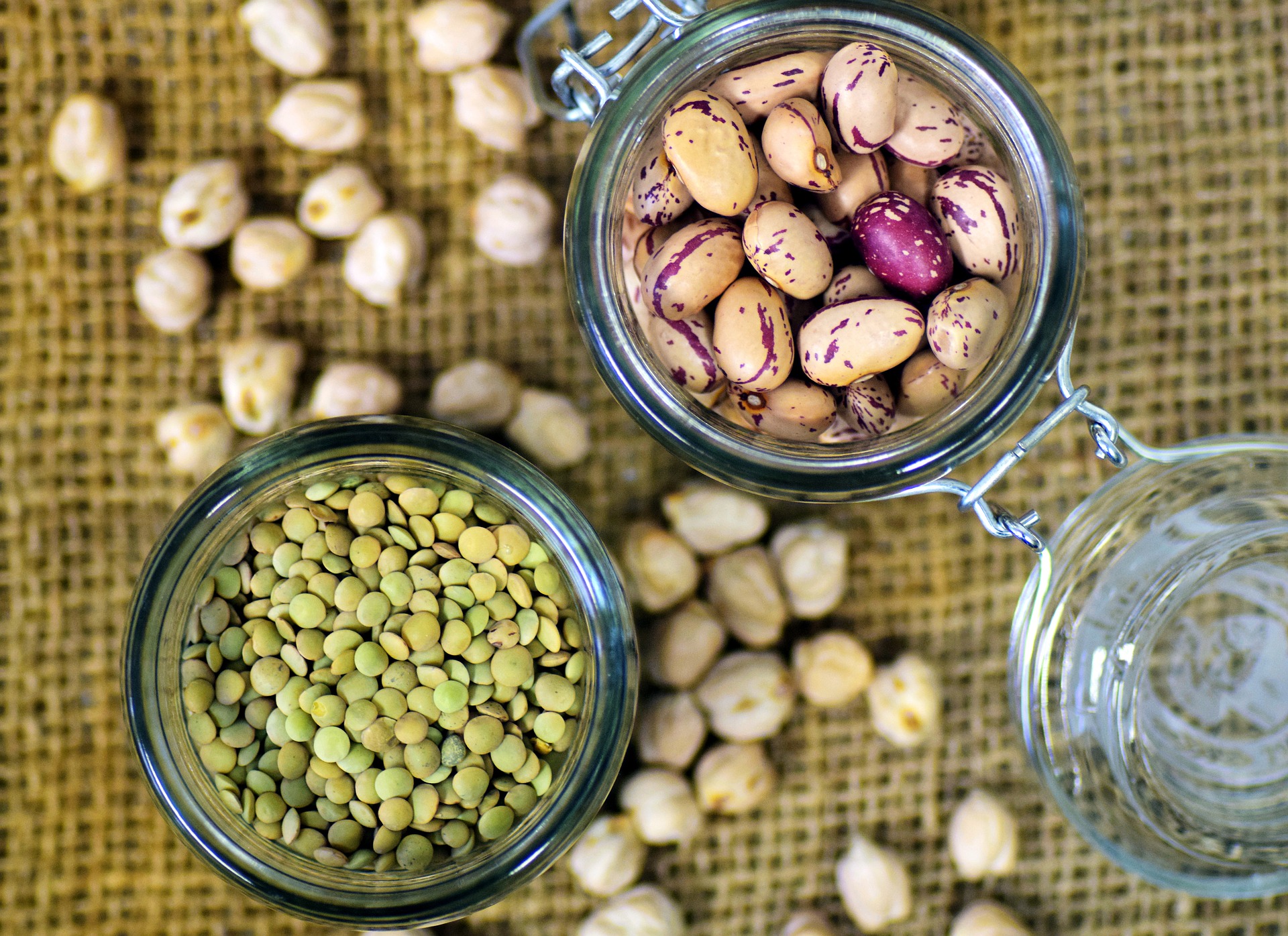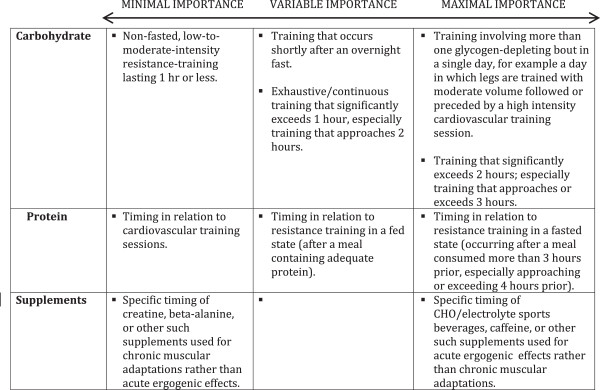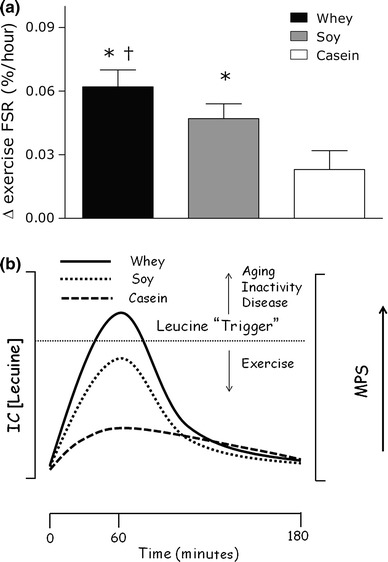
It’s common knowledge that dietary protein intake is an important factor in building muscle. Just ask any bro guzzling down a protein shake after their workout. What makes protein so important for muscle growth though? How much protein is really needed for someone trying to build a maximal amount of muscle? How do sources of dietary protein differ? Now these are details that your average bro would have no idea how to correctly answer.
This article will discuss the optimal protein intake for different types of athletes and methods to maximize performance for the plant-based athlete, in particular.
How Protein Works in the Body
The average human body is comprised of roughly 18% protein. Proteins are essential components of muscle, blood, hormones, antibodies, skin, cell membranes, enzymes and virtually all other tissues and components in a living being. Proteins are composed of various amino acids which are essentially strung together to form a complete protein. There are twenty standard amino acids; nine of which are considered essential amino acids and the remaining eleven are non-essential. Essential amino acids include Isoleucine, Leucine, Valine, Lysine, Methionine, Phenylalanine, Threonine, Tryptophan, and Histidine. The first three mentioned above are also coined branched-chain amino acids due to their chemical structure and are most notably associated with causing a muscle protein synthesis response in the body, which will be discussed more later. Essential amino acids cannot be synthesized in the human body and must be obtained through diet while non-essential amino acids can be created from the essential amino acids as needed.

Upon ingestion of dietary protein, the protein strands are broken down into their amino acid components in the body. Any and all protein that is consumed from food will be broken down this way (hence why supplements like collagen are mostly bullshit, but that’s another topic for another day.) These amino acids are shuttled around for various purposes including repairing damaged muscle proteins from resistance training, which is what we are most concerned with discussing in this article. For the average person unconcerned with body composition, intake of protein is usually between ten percent and fifteen percent of total calories consumed and rarely exceeds twenty percent. The RDA (recommended daily allowance) for protein intake is actually only 0.8 grams per kilogram (0.36 grams per pound) of bodyweight per day. For a 180 pound man, this would only be sixty-five grams per day. This amount is almost impossible to not reach for anyone eating enough calories to at least maintain a steady body weight, as it generally equates to only about ten percent of total calories consumed throughout the day.
Optimal Protein Requirements for Athletes
The RDA generally concerns sedentary people and doesn’t account for athletes seeking to optimize performance in their endeavors. Athletes pursuing mostly endurance based training and athletes concerned with resistance training both likely require more protein than the RDA accounts for. However, endurance based athletes seem to require less dietary protein than their strength training counterparts. One gram per kilogram of bodyweight a day seems to be sufficient for individuals practicing light to moderate endurance training and consuming enough calories to maintain weight (Tarnopolsky, 2004). However, a hypocaloric diet (diet low enough in calories to cause weight loss) and low carbohydrate intake seems to increase protein demands due to increased amino acid oxidation. Elite endurance athletes also likely require increased protein intake due to increased amino acid oxidation as well. For individuals meeting either of these criteria, a protein intake of about 1.6 grams per kilogram of bodyweight per day seems to be sufficient for most (Tarnopolsky, 2004).
Most research on the subject demonstrates that a protein intake of about 1.6 grams to 2 grams per kilogram of bodyweight per day is sufficient for growth and recovery for resistance trained athletes (Phillips, 2011)(Bandegan, 2017). The American College of Sports Medicine, the Dietitians of Canada, and the Academy of Nutrition and Dietetics recommend as low as 1.2 grams to 2 grams /kg/d. However, there is some evidence that amounts up to 3.4 g/kg/d may result in improved body composition (more fat loss and muscle gain/maintenance) versus 2.3 g/kg/d (Antonio, 2015).
Furthermore, for resistance trained athletes in a hypocaloric diet aiming to maximize muscle retention and fat loss, airing towards the higher intake is desirable. For individuals fitting this description, amounts of 2.2 g/kg/d to 3.4 g/kg/d should be the target. The leaner the individual becomes, the higher the protein intake should be within this spectrum (Helms, 2014). Individuals in the final stretch of their cut for a bodybuilding show or photoshoot for instance may want to raise their protein intake up to these levels.

For overweight, resistance trained athletes (think linebackers, higher weight class powerlifters or strongmen), 1.2 to 1.5 g/kg/d should suffice for most based on the studies (fat free mass calculations were not considered).
Age should also be taken into consideration. Older trainees demonstrate a blunted MPS response when compared to younger trainees so more protein seems to be required the older a lifter gets. Forty grams of protein seems to cause a maximal MPS (muscle protein synthesis) response in older men. A twenty gram dose resulted in a much weaker response in older men than an equivalent dose which seemed to maximize the MPS response in younger men (Churchward-Venne, 2016). Based on these findings, older athletes may want to increase overall protein intake a bit and aim for forty grams of protein ingestion per meal to maximize the response.
Protein Requirements for the Plant-Based Athlete
We already know that it’s possible to excel in endurance and resistance training endeavors as a vegetarian or vegan based on many real-world examples and studies. Individuals such as the ultraman Rich Roll, MMA fighter Mac Danzig, strongman Patrik Baboumian, and Olympic weightlifter Kendrick Farris for example all excel in their fields while following plant-based diets. The Academy of Nutrition and Dietetics, the United States largest organization of food and nutrition professionals which represents over 100,000 professional practitioners, has recognized well-planned plant-based diets as suitable for all stages of life, including for children, pregnant mothers, the elderly, and for athletes. They also recognize the potential health benefits of the diet such as lower risk of death from heart disease, lower LDL (bad) cholesterol, blood pressure, hypertension, type II diabetes, obesity, and even lower cancer rates when compared to non-vegetarians (Craig, 2009).
So, based on the studies, we’ve deduced the optimal protein intake for athletes to be somewhere between roughly 1.6 g/kg/d all the way up to 3.4 g/kg/day. That’s a pretty big range, but we’re about to confound that a bit more. Sources of protein vary in amino acid profiles, and many plant proteins don’t seem to cause as strong of a muscle protein synthesis response in the body when compared to an equal amount of several animal-based protein sources. This may be due to the relative lack of the amino acid leucine, which has been closely tied to causing the greatest MPS (muscle protein synthesis) response in the body when compared to other amino acids. Other possibilities may be the bio-availability of certain plant protein versus certain animal based proteins (van Vliet, 2015). That being said, soy based protein powder in particular demonstrated a more powerful MPS response than casein protein (milk based) in a 2009 study. However, whey protein powder demonstrated a stronger response than both of them, out performing soy by 18% when supplemented at rest and 31% after exercise (Tang, 2009). 
One way to increase the MPS response from plant protein would be to simply eat more of it during meals. Higher amounts of protein consumed regardless of the source will only increase the MPS response further until the maximal response is reached. A 2016 study of a thirty-five gram dose of wheat protein supplementation compared to an equal amount of whey and casein demonstrated that a stronger MPS response occurred after the whey and casein versus wheat protein. However, a substantial increase in MPS occurred after ingesting a sixty gram dose of wheat protein when compared to the thirty-five gram dose (Gorissen, 2016).
Vegan athletes concerned with optimal body composition may likely want to lean a bit more towards the middle to higher end of the above mentioned protein intake spectrum. Perhaps something like a 1.8 to 3.4 g/kg/d range would help optimize muscle and strength gain while following a plant-based diet, but this is purely speculation based on the data. Adding plant based foods particularly high in leucine content or supplementing with additional leucine before meals could also help to elicit a higher MPS response.
Leucine and Muscle Protein Synthesis
It appears that the amino acid leucine specifically is most associated with increases in muscle protein synthesis, which is very important for improved muscle growth (Wall, 2013). A study reports that protein intake in the range of 1.2 to 1.8 grams per kilogram of bodyweight per day consumed as 3 to 4 meals with equal protein content seems to maximize muscle protein synthesis in most observed cases. Further studies observed that 20 grams of protein ingested in a sitting seems to spike muscle protein synthesis to near-maximal levels and yet another study noted that 40 grams in one sitting increased it by another ten to twenty percent (Witard, 2014)(Macnaughton, 2016). It’s important to consider that a whey protein supplement was used for both of these studies.

Plant sources of protein are often lower in leucine than animal based protein, which as mentioned earlier, is believed to be primarily responsible for the biggest increases in muscle protein synthesis. This can be adjusted for by merely increasing intake of plant protein a bit and/or opting for sources of plant protein higher in leucine and potentially the other branched chain amino acids. Some plant based foods high in leucine include green peas at roughly 300-500 milligrams of leucine per eighty-five gram serving, oats at around 400 milligrams per forty gram serving, lentils at 600 milligrams per ninety gram serving, pumpkin seeds at 500 milligrams per thirty gram serving, and soybeans at a whopping 1,200 milligrams per ninety gram serving. To put this in perspective, one eighty-five gram serving of a lean cut of steak (about twenty-five grams of protein) has about 2,250 milligrams of leucine. Quite a difference, but keep in mind that the calories from lean steak comes from almost all protein. When protein content is comparable, leucine will also be much higher in the plant foods as well. For example, if the soybeans are adjusted for protein to equal the amount in the lean steak example, it now comes out to 1,860 milligrams grams of leucine.
Supplementing with plant based protein powder may be an effective method to increase overall protein intake and leucine content. One twenty-eight gram scoop of pea protein powder has twenty-four grams of protein and right around 2,000 milligrams of leucine which would undoubtedly elicit a strong MPS response.
In a 2013 study, 2.5 grams of leucine supplementation was shown to further increase the MPS response in older men after a meal high in dietary protein when compared to the same meal without the additional leucine supplementation (Wall, 2013). This study was performed on older men due to their blunted MPS responses from aging, but it’s still applicable to anyone. Supplementing with 2.5 to five grams of a vegan-based leucine powder (many are derived from duck feathers) before a meal is likely to help optimize MPS afterwards, which may be particularly useful for the plant based athlete if they don’t simply feel like consuming more protein in a single meal.
Summary
A larger intake of protein will result in an increased muscle protein synthesis response which is important for maximal muscle growth and recovery. Sedentary individuals, whether plant-based or not, will get by fine consuming the RDA of protein which is 0.8 grams per kilogram (0.36 grams per pound) of bodyweight per day. Increasing this amount to about 1g/kg/d may be more appropriate when incorporating small amounts of cardio activity. Serious endurance athletes may want to increase protein up to 1.6 g/kg/d. Plant-based lifters should aim for an intake around 1.8 grams to 3.4 grams per kilogram of bodyweight per day. The athlete should lean towards the higher end of the spectrum the leaner they are, if they’re cutting and attempting to maximize body composition and the older they are. The higher end of the range is basically reserved for older, resistance trained athletes leaning out to very low levels of body fat while trying to maximize body composition and the lowest range would be more appropriate for a resistance trained lifter maintaining a healthy body weight.
Some individuals may respond differently to different protein intakes so experimenting for a few weeks at a time may help determine what’s best for you. For serious athletes, consider eating around forty grams of protein or more per meal which include foods high in the amino acid leucine and/or 2.5 to five grams of a plant-based leucine supplement before meals to optimize the muscle protein synthetic response.
